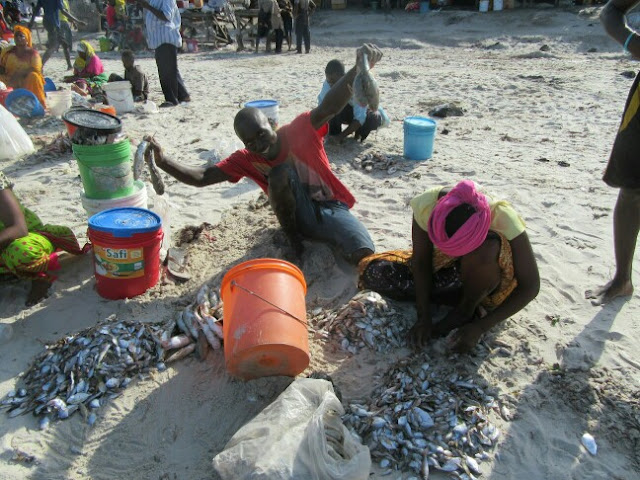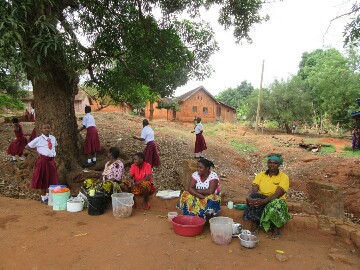I'm now in Madagascar; a dream come true. I don't really have any preconceived ideas except that it will be different and I will see things I've never seen before.
Arriving in Antananarivo (Tana), the capital, I stayed in Ivato, near the airport, as I was flying down to the south east early the next morning. I had to venture out to dinner, a 15 minute walk accompanied by the hotel guard to show me the way. We threaded our way through narrow streets busy with people and lined with small wooden houses, many doubling as shop fronts. The people are an intriguing mix of Africa and Asia (their forebearers coming from Indonesia/Malaysia 1000s of years ago. When I walked into the restaurant I could have been in France... the decor, the menu, the bar. The meal was delicious accompanied by a tropical downpour thundering down on the roof and windows reminding me where I was. I didn't know that, due to a power shortage, electricity is switched off between 7-9pm, (and 9-11am), every day. Now I had to negotiate, in total darkness, streets that had turned into rivers, competing for the dry ground with a lot of other people. Fortunately at a particularly tricky section my friendly guard found me and by the weak light from his 'phone we completed the journey.
My destination the following day was Taolagnaro, previously known as Fort Dauphin. I stayed in a lovely bungalow looking out over the Indian Ocean with stunning sunset views from the garden sofa and from the bar 2 doors down!
I had my orientation for the project and also had a chance to wander around the town.
Fort Dauphin is famous for the oldest building in Madagascar, a 1504 fort, and lobster, most of which is exported. Pirouges, dug out canoes, litter the beaches and they use them with sail and paddle to fish but without outriggers which looks pretty unstable to me.
Next stop Sainte Luce Reserve...









































